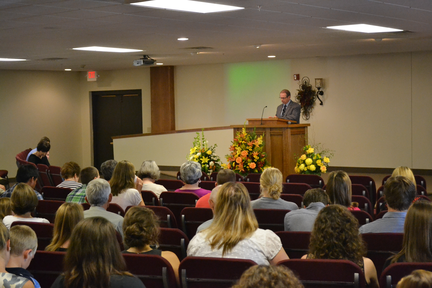Guiding Lights

Robert Robinson, author of the hymn “Come, Thou Fount of Every Blessing,” lost the happy communion with the Savior he had once enjoyed, and in his declining years he wandered into the by-ways of sin. As a result, he became deeply troubled in spirit. Hoping to relieve his mind, he decided to travel.
In the course of his journeys, he became acquainted with a young woman on spiritual matters, and so she asked him what he thought of a hymn she had just been reading. To his astonishment he found it to be none other than his own composition. He tried to evade her question, but she continued to press him for a response.
Suddenly he began to weep. With tears streaming down his cheeks, he said, “I am the man who wrote that hymn many years ago. I’d give anything to experience again the joy I knew then.” Although greatly surprised, she reassured him that the “streams of mercy” mentioned in his song still flowed. Mr. Robinson was deeply touched. Turning his “wandering heart” to the Lord, he was restored to full fellowship.